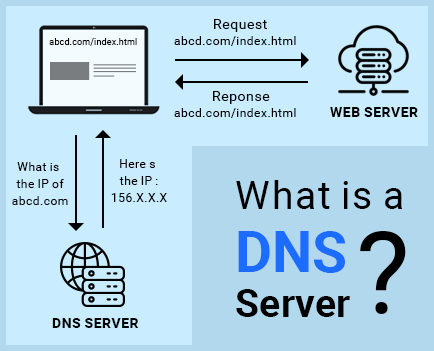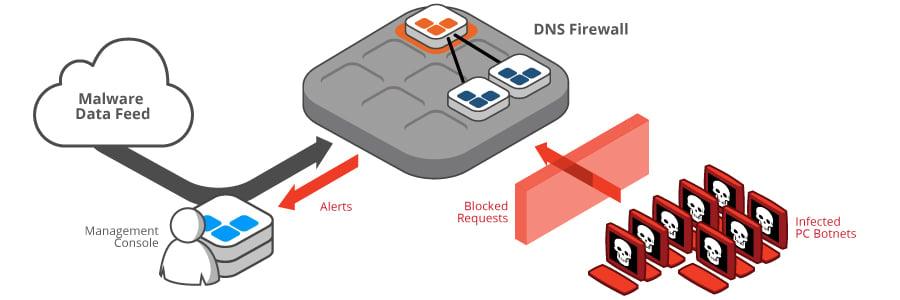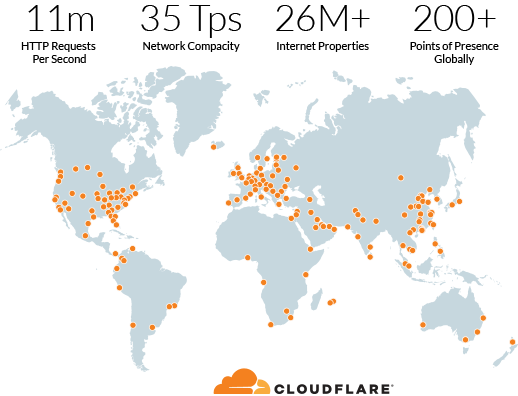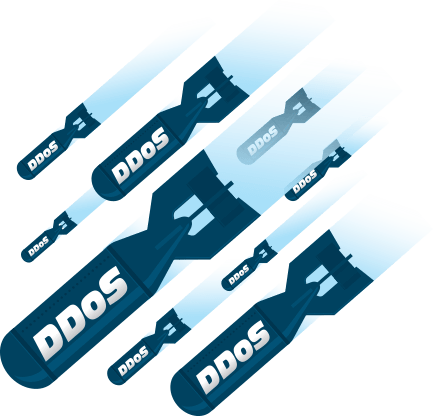
Companies with a strong web presence face the constant struggle to support legitimate user traffic while avoiding attacks from external threats. This becomes more difficult every day, with hackers constantly devising new ways to infiltrate networks and execute different forms of malware.
DNS Firewalls Reduce Your Risk
Conducting large-scale business online carries a certain level of risk. However, having the right strategy and a strong suite of security tools can drastically improve the odds of keeping your infrastructure and user data protected. DNS firewalls should be a fundamental part of any enterprise’s cybersecurity strategy. Not having one could seriously put your business and your customers at risk.
In this article, we’ll take a close look at how DNS firewalls work and why they add value to a company’s IT toolkit.
The Basics of DNS
Every time a user navigates to your company’s webpage, the browser initiates a request using the URL address ending in .com, .ai domain, or some other top-level domain. To proceed, the browser needs to ping a domain name system (DNS)endpoint to determine the proper routing path for its traffic.
Web addresses are simply aliases for the internet protocol (IP) addresses that are being managed behind the scenes.

The DNS endpoint tracks the relationship between web addresses and IP addresses to ensure they always stay in sync. This can be more challenging than it sounds because web traffic comes from all over the world and could connect to one of thousands of DNS endpoints.
From the enterprise point of view, IT staff must work together to ensure all DNS records are kept up to date across the organization. Depending on the size of your network and architecture, you may actually need to operate your own internal DNS server to help route traffic to various destinations.
It’s critical to keep DNS names and routes secure, because a domain name is often one of the most valuable assets that a company owns and a key part of your branding.
DNS Firewalls in the Cloud
Firewalls can be placed at different layers of IT infrastructure depending on the requirements of your enterprise’s network. In the early days of the internet, most firewalls were physical hardware devices that you would connect to the edge of your network so that all outside traffic would flow through it first.
As the cloud model has gained popularity throughout various industries, firewalls have shifted to more of a software focus. These days, a number of major vendors offer firewall services to add to your existing infrastructure. You will want to find out what your hosting provider offers in terms of firewall protection. For example, 101domain partnered with Cloudflare, the largest global cloud platform to provide such premium DNS services.
How Do DNS Firewalls Work?
According to Cloudflare support, a DNS firewall is a cloud utility that is specially designed to filter traffic through DNS endpoints and protect internal systems. In most cases, you will reroute DNS entries to the firewall vendor’s nameservers (such as Cloudflare). There, all incoming traffic is checked against a set of policies and rules. If one of them is violated or flagged, the web request is blocked.

Keep in mind that, if you use a virtual private network (VPN), there is the potential for it to conflict with your firewall. This conflict must be resolved in order to prevent DNS leaks from either software that could lead to a network breach. Check the documentation or contact support for advice on how to properly configure your VPN. While most come with a handy app to easily connect within Windows, there are fewer VPNs recommended for Mac operating systems. Most require you to manually connect to it, and the potential for creating a conflict with your firewall is higher.
This conflict should not be difficult for the IT personnel staff to resolve. However, make sure the issue isn’t overlooked because a DNS firewall that leaks, sort of defeats the purpose.
Types of Cyberattacks
The biggest risk for large enterprise public sites is that attackers could coordinate an attack where your web servers get overloaded with fake traffic. This is one of many cyber attacks known as a distributed denial of service (DDoS) and is usually run through a series of hijacked bots.
Cybersecurity experts agree that implementing a firewall at the DNS layer of your network is the most effective strategy for stopping DDoS attacks. The DNS firewall can assess traffic levels from different sources and identify when an attack is being executed.
The top DNS firewall providers operate servers across the globe which helps your enterprise load balance global traffic and handle it effectively. With over 165 data centers in 75 countries around the world, Cloudflare helps deliver website content to a global audience faster.

Additional Cyber Attack Threats
But blocking a DDoS attack is only one piece of the cybersecurity puzzle. Staying safe online requires much more work, both for single users and larger enterprises. Hackers often look for ways to evade firewall rules and infiltrate corporate networks. From there, they can attempt to execute a larger attack involving malware such as ransomware, which holds local data hostage until a payment is made.

Companies often make the mistake of thinking all threats to their organization come from outside of the network. In fact, social engineering is how many incidents begin as hackers have found that employees and insiders are often vulnerable to trickery. If a member of your organization has their identity stolen, it could put all of your infrastructure and databases in jeopardy. How much jeopardy?
To put a finer point on it, 60% of college students admit that they might have a cell phone/internet addiction and casual attitude towards internet safety. You can almost hear hackers licking their lips at the smorgasbord of opportunity. Is tomorrow’s workforce setting up future employers for data breaches on an even more massive scale than already exists? Could be.
DNS Firewalls are a Smart Solution
All DNS firewalls are not created equally. Some will emphasize flexibility and customization which is great if you have a large IT staff with expertise when it comes to network security. This kind of firewall solution will let you set manual policies and decide what levels of traffic you can sustain.
Most agile organizations now prefer a smarter solution, specifically a cloud-based tool that runs on artificial intelligence and machine learning algorithms. Humans are not capable of tracking each and every web request that enters the network. Most organizations feel better about a firewall set in place, monitoring traffic and preventing DNS attacks.

Final Thoughts
DNS lookups are a critical part of how the modern internet functions. Your company’s domain name is the easiest way for outside users to access your website and having fast and reliable DNS responses means their experience will be a good one. Unfortunately, many hackers look to expose DNS issues as part of a larger cyberattack.
DNS firewalls are an effective security tool that monitor all incoming traffic and help you block attacks trying to break through your network. Thus, ensuring that your website remains stable and reliable. Every enterprise website should have a premium DNS solution in place to protect your brand and digital assets from DDoS attacks.